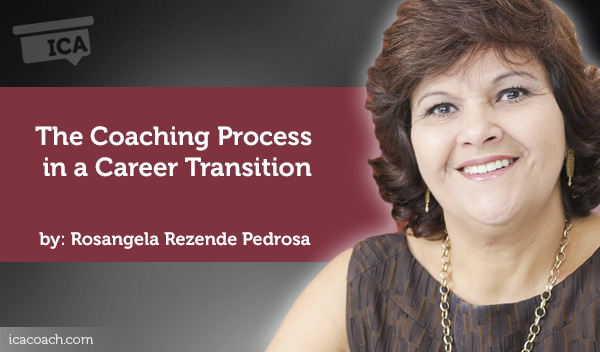 Research Paper By Rosangela Rezende Pedrosa
Research Paper By Rosangela Rezende Pedrosa
(Executive Coach, BRAZIL)
The construction of a New Professional Identity
Case study goal:
The purpose of this case study is to illustrate the coaching transformation power in process of career transition, analyze the challenges of this process and elaborate reflections to inspire new studies and researches in this field. It also intends to demonstrate tools and concepts as anchors for the change process of clients ‘careers that are searching for Professional alternatives.
Context:
MS is a 43 years old dentist that has been quite unsatisfied with her career. Complaining is the word that defines her routine. She complains about different aspects of her profession and among the most recurring complaints MS declares:
The items above were the main subjects of her conversations with friends and, mainly, not knowing how to change this scenario. A friend of hers that was acquainted with the coaching practice was able to gather some friends and gave MS a coaching process as a birthday gift. That`s how MS and I started the process in November 2009.
The Client`s Demand X The Coaching Process Procedures and the Expected Outcome
When establishing the rapport, the coach listened to the client trying to understand MS`s version, considering that MS`s friend had already given some information.
The context overview was similar to the one brought up by MS`s friend. Her anxiety and uneasiness were confirmed and also an important variable. MS felt embarrassed with the gift and the coaching process. MS believed it was important to explore her feelings, was worried to evaluate herself and since she wasn`t paying for the coaching, she was committed to change her behavior aiming the desired future.
This was considered a central subject because it would be hard to set an effective procedure if she didn`t commit herself and had faith on the coaching process.
The foundation of the coaching contract were set after listening to the client`s perception and explanations about the coaching process as well how it differs from other procedures such as consultancy, counseling and therapy.
In the first instance, she hired 12 (twelve) sessions of 1 (one) hour each a week. MS seemed to be very motivated and we were able to establish a relationship based on confidence.
The ultimate goal of the coaching process was established: Find alternatives to a new profession/job that provided satisfaction and a compatible wage with the life style determined by MS.
MS was motivated to describe tangible attributes that provided her professional satisfaction as well the salary that would be suitable.
In the first session MS could extend the comprehension of the final goal and acknowledge how confused she felt and how little she knew about her interests, values, strengths, skills and even about how much money she needed to afford her life style.
Thus, finding solutions/answers to these matters became goals in the coaching process. Summing up, at the end of the coaching process MS would like to have a clear distinction about: